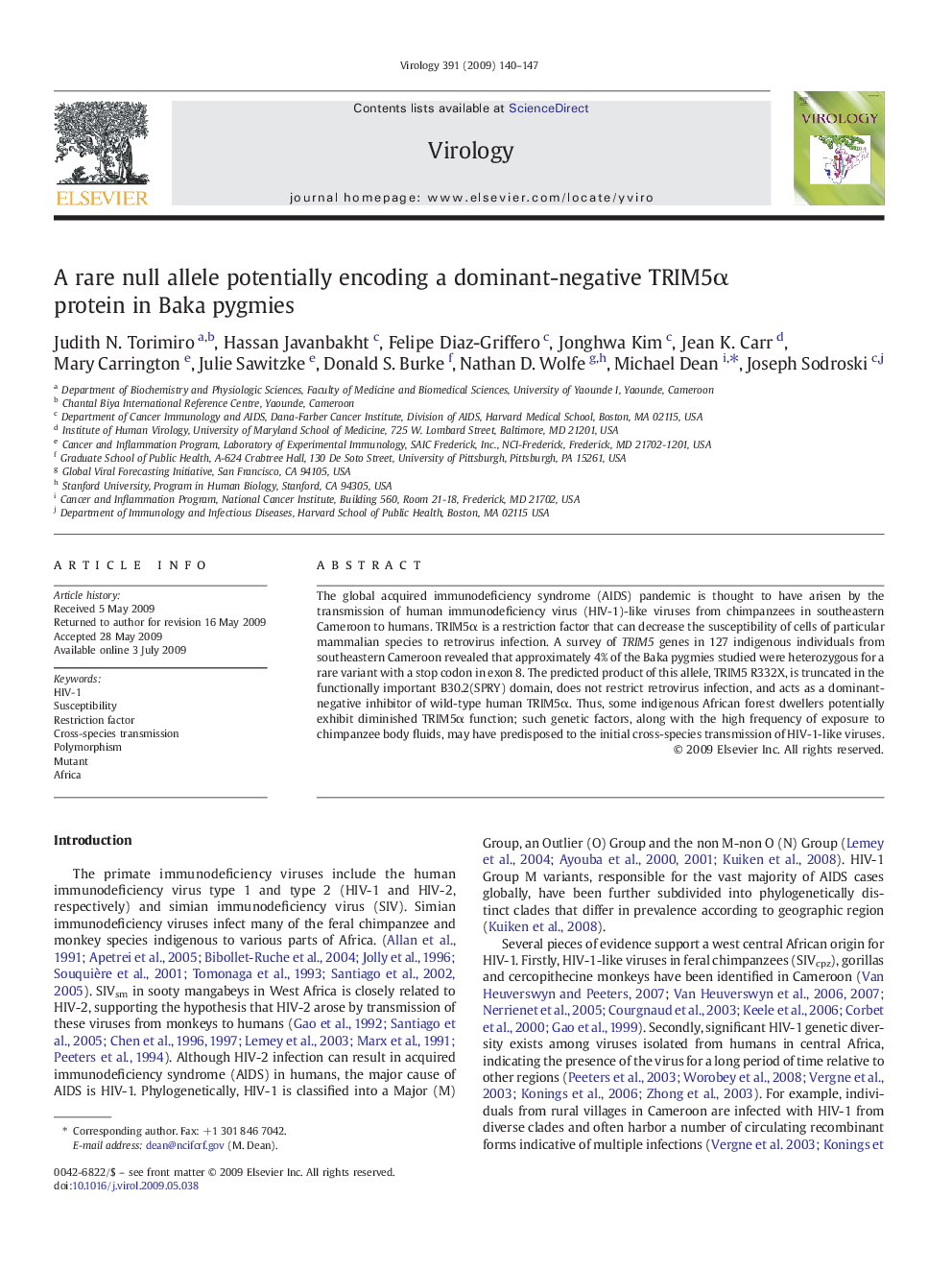| Article ID | Journal | Published Year | Pages | File Type |
|---|---|---|---|---|
| 3425519 | Virology | 2009 | 8 Pages |
The global acquired immunodeficiency syndrome (AIDS) pandemic is thought to have arisen by the transmission of human immunodeficiency virus (HIV-1)-like viruses from chimpanzees in southeastern Cameroon to humans. TRIM5α is a restriction factor that can decrease the susceptibility of cells of particular mammalian species to retrovirus infection. A survey of TRIM5 genes in 127 indigenous individuals from southeastern Cameroon revealed that approximately 4% of the Baka pygmies studied were heterozygous for a rare variant with a stop codon in exon 8. The predicted product of this allele, TRIM5 R332X, is truncated in the functionally important B30.2(SPRY) domain, does not restrict retrovirus infection, and acts as a dominant-negative inhibitor of wild-type human TRIM5α. Thus, some indigenous African forest dwellers potentially exhibit diminished TRIM5α function; such genetic factors, along with the high frequency of exposure to chimpanzee body fluids, may have predisposed to the initial cross-species transmission of HIV-1-like viruses.
